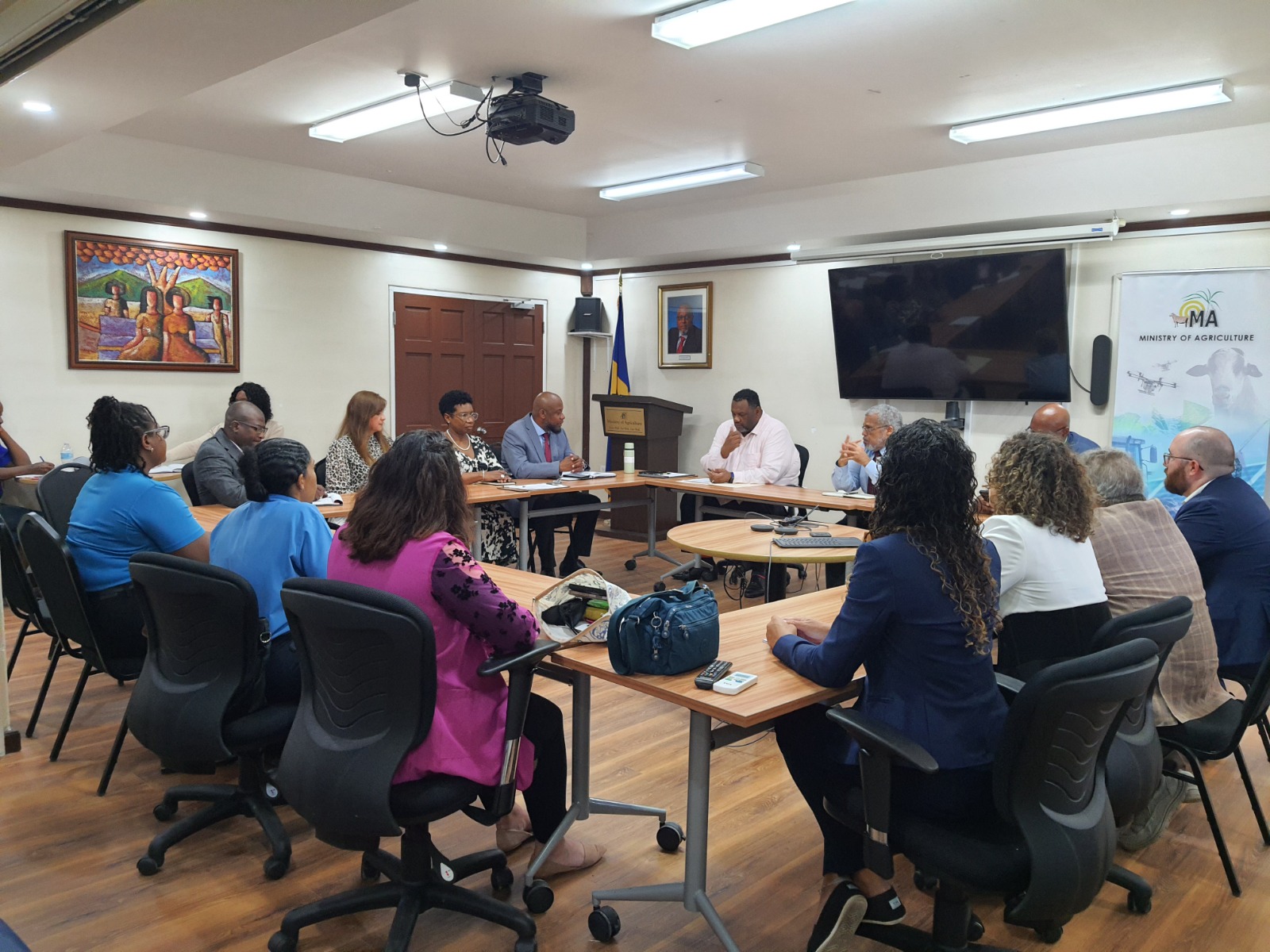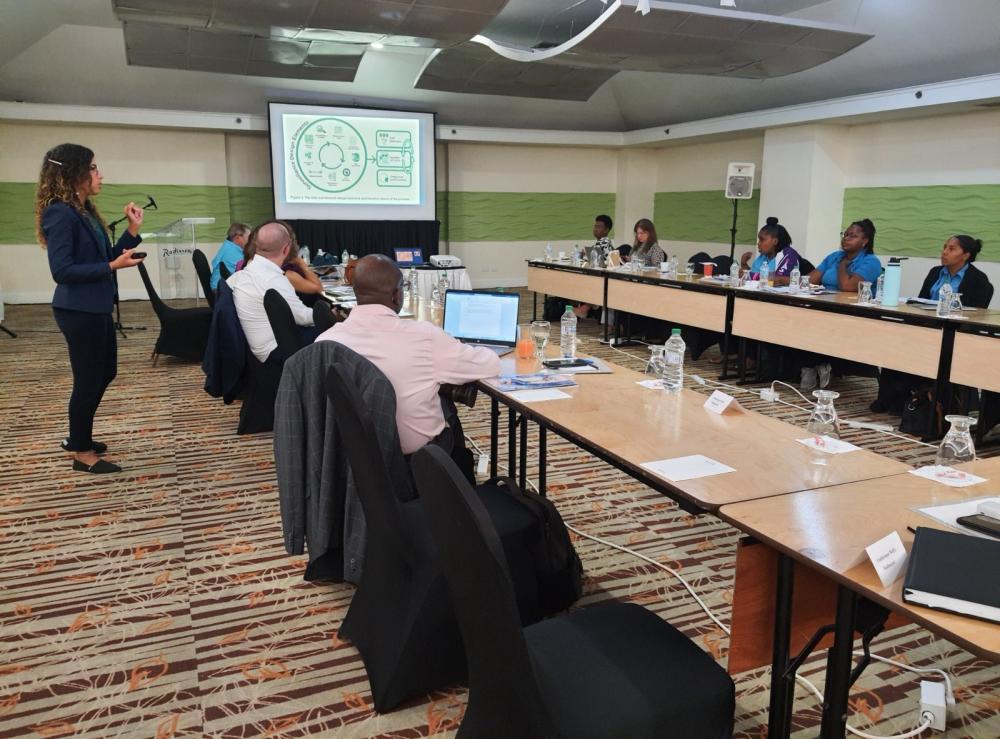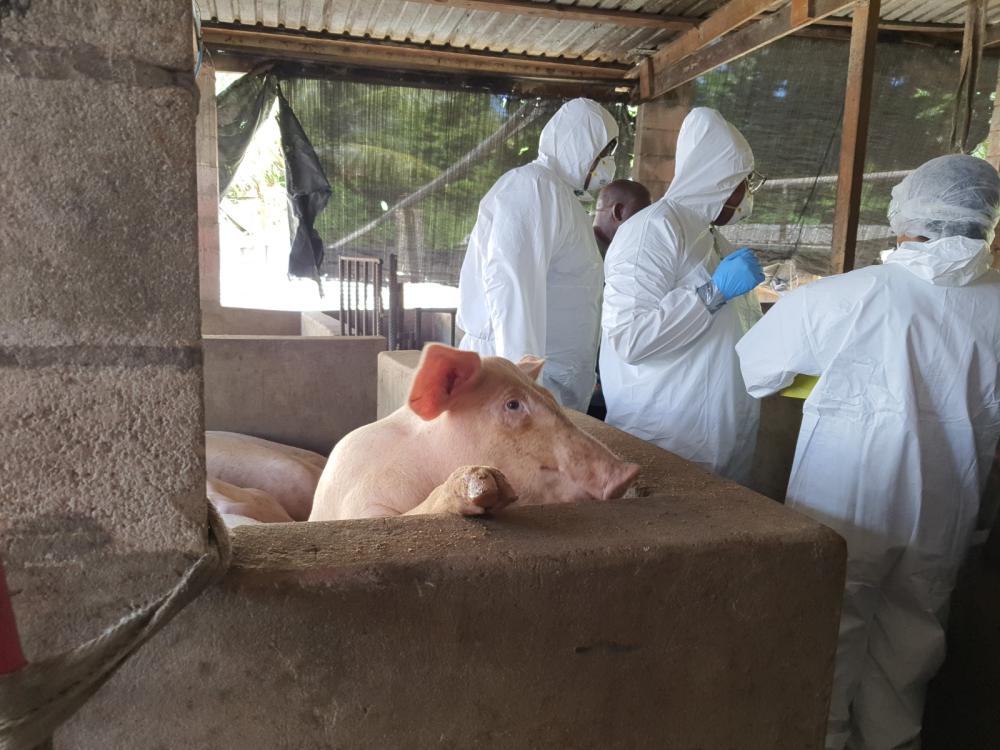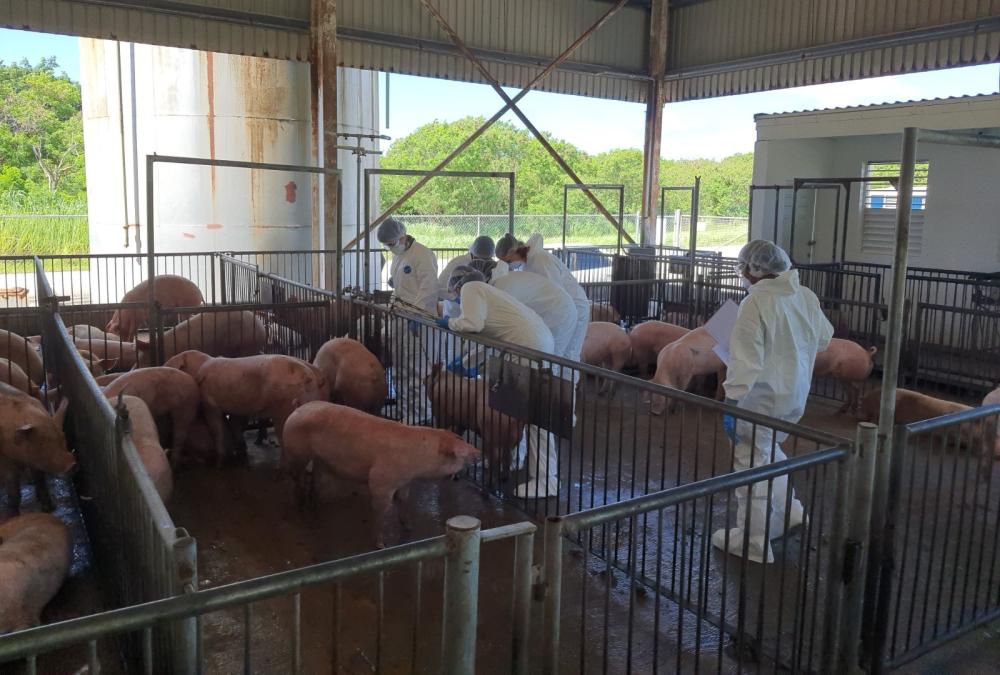Specialists from the Inter-American Institute for Cooperation on Agriculture (IICA) and the US Department of Agriculture are implementing a program with the Veterinary Services Department of Barbados to collect samples and conduct tests on pig farms.

Bridgetown, 29 August 2024 (IICA). A technical mission from the United States Department of Agriculture (USDA) and the Inter-American Institute for Cooperation on Agriculture (IICA) is in Barbados to help strengthen the surveillance and prevention of African Swine Fever (ASF) in that country and across the Caribbean.
In collaboration with the Veterinary Services Department of the Ministry of Agriculture, Food and Nutritional Security of Barbados, workshops are being held this week to develop strategies for preventing and containing possible outbreaks of the viral disease.
The technical mission is part of the USDA-IICA ASF Capacity Building Project for Central America and the Caribbean”, launched in June 2024 at IICA Headquarters in Costa Rica for Central America, and in October 2023, during Caribbean Week of Agriculture, for the Caribbean.
USDA and IICA experts are carrying out a work program that includes technical meetings and field visits to collect samples and conduct tests on pig farms. The objective is to equip the Veterinary Services Department to enter the passive ASF surveillance stage, which includes the development of a robust work strategy with sampling for early diagnosis of the disease across the country.
This is the first time that the project has carried out actions on farms in Caribbean countries for the early diagnosis of this hemorrhagic viral disease that primarily affects pigs.

The collaboration with Barbados’s Veterinary Services Department entails the creation of a national strategic work plan with sampling for early diagnosis to deal with possible outbreaks of ASF.
The plan will adopt an interinstitutional approach that includes support for pig farmers in dealing with the disease and strengthening the surveillance capabilities of animal health services.
The experts taking part include Mark Trotman, head of the Veterinary Services Department of the Ministry of Agriculture, Food and Nutritional Security of Barbados; Allister Glean, IICA Representative in Barbados; Terence Mayers, a veterinarian with the Veterinary Services Department of the Ministry of Agriculture, Food and Nutritional Security of Barbados; Ericka Calderón, IICA Agricultural Health Specialist and Project Manager; Eric Coleman, Director of Emergency Programs at the USDA’s Animal and Plant Health Inspection Service (APHIS); Zackery Tipton, Program Manager for the USDA’s Foreign Agricultural Service (FAS); and Fred Soltero, a USDA veterinarian in charge of the office in Puerto Rico.
Allister Glean said that the IICA Delegation in Barbados is working closely with technical specialists from the Institute’s Headquarters to provide support to the government’s ASF prevention and surveillance efforts.
“The work overseen from Headquarters and our efforts on the ground are providing early support to the Ministry of Agriculture, Food and Nutritional Security of Barbados and local farmers to prevent the entry of the disease. We have also established a testing space on pig farms in order to support producers and work together in the event of an outbreak”, said Glean.
Mark Trotman stressed that the Barbados Veterinary Services Department is testing pork products that could be contaminated with the ASF virus. He explained that this was just one of the efforts the island’s government is making to protect the country and its producers.
“The implementation of surveillance and testing plans to prevent ASF is in addition to other efforts, and that is why we are fully committed to participating in this IICA and USDA program”, said Trotman.
Ericka Calderón commented that the work being carried out in Barbados marks the beginning of the implementation stage of self-sustaining surveillance plans across the countries of the region.

“Barbados was selected as the first country to work on the pilot sampling plan in pigs, and we shall then continue with other nations in the region. We are in the passive surveillance phase, which aims to use the surveillance structures that Barbados already has in place to take samples and perform tests that will show us the country’s sanitary status with regard to ASF”, added Calderón.
FAS/USDA representative Zackery Tipton said the main role of his agency is to provide technical support to nations whose food security and economies may be compromised by African Swine Fever.
“USDA uses its technical expertise to provide guidance on ASF prevention, now in Caribbean countries. Our Puerto Rican team is here today to provide training to Barbados’s Veterinary Services Department and, working together, to create a robust strategy to combat the spread of this disease”, Tipton explained.
Fred Soltero stressed the importance of containment, because any spread of the disease from Haiti and the Dominican Republic to other Caribbean countries would pose a threat to the region’s economy.

“The spread of the disease would be a discouraging development for the economies of the Caribbean countries, as well as those of Central America. The costs for producers would be incalculable, and it would be almost impossible to limit the disease to a few countries of the Americas”, Soltero added.
He and his Puerto Rican team are playing a leading role in the mission in Barbados by undertaking educational work and working closely with officials at the Veterinary Services Department.
The USDA-IICA project aims to promote the drafting and adoption of legislation on ASF and preventive actions under the “One Health” approach, and improve response capabilities to outbreaks in the region.
The importance of these actions stems from the fact that ASF is a highly contagious disease, with mortality and morbidity levels close to 100%, and that in 2021 it significantly affected the Dominican Republic and Haiti, creating the need for a coordinated response in Latin America and the Caribbean.
More information:
Institutional Communication Division.
comunicacion.institucional@iica.int











